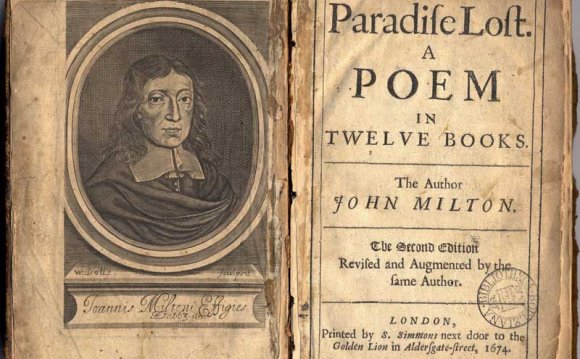
IntroductionI have written this study guide for students taking GCE Advanced level (AS and A2) courses in English literature, and other comparable literature courses. It is suitable for undergraduates and the general reader who is interested in the study of poetry. It can be used as a way in to the study of the first two books of Paradise Lost generally. Books 1 and 2 - structureBook 1 breaks down naturally into six sections:
Book 2 breaks down into three principal sections, the first of which can be considered in seven sub-sections:
Book 1| | | | | | | Invocation and introduction of theme (1-26)It is characteristic of a classical epic that the poet invokes the aid of his patron muse. Milton marries his Christian theme and neo-classical method by invoking, as his muse, the Holy Spirit, third Person of the Trinity. This section is a prayer, in which Milton states his subject, and asks for divine assistance in giving voice to it. Milton states that his purpose is to: Assert eternal providenceAnd justify the ways of God to men. Note that this section contains only two sentences. The main verb, in the first, is the thirty-ninth word in the sentence. The various indirect objects of the verb sing reflect the magnitude of the poem's subject and its author's task: disobedience...Death woe...loss of Eden...one greater Man. Satan's revolt (27-83)Note how easily Milton moves from prayer into an account of Satan's fall, by asking who or what caused man to fall. According to Milton, Satan's motive was to be above his peers. The expulsion of Satan from Heaven is depicted more fully in Book 6 (his revolt, partly, in Book 5) of . Satan is cast out of Heaven, together with his horrid crew. Nine days they lie on a lake of fire, then regain consciousness to find themselves in Hell. Satan's speech to Beelzebub (84-127)Satan acknowledges how utterly his confederate, Beelzebub, has been changed, for the worse, by the devils' defeat, but stresses fact that they are still united in their fall. He recognises God's superior strength, but points out that he now knows the extent of God's power, previously unknown because untried. Despite the change they have outwardly undergone, Satan stresses the unchanged nature of his attitude to God's Son, the potent Victor. All is not lost because Satan will never submit freely to God's authority. Satan suggests that God's rule was endangered by his revolt, that he will never sink to the indignity of asking forgiveness, and outlines his intention of conducting further warfare against God. Satan's speech smacks of wishful thinking; he speaks boastfully, but at the same time tortured by pain and profound despair. Beelzebub's reply and Satan's second speech (128-191)Beelzebub acknowledges Satan's trial of God's might, bewails loss of Heaven, and the punishment the fallen angels are suffering, though this will not be alleviated by death. He suggests that God has deliberately left devils their strength, to be His slaves, carrying out his errands in the gloomy deep of Hell. Satan replies that the devils' task must be never to do anything good, but always to strive to pervert to evil ends whatever God does, turning to evil His good actions. Satan suggests leaving the lake of fire in which they lie, and reassembling their forces. Note Satan's resolution and his taking the initiative. As the poem continues we also note Beelzebub's support of Satan, his ready agreement with all he says - Beelzebub is very shrewd: he makes sure he defers to his superior. Milton gives some account here of the topography of Hell. Satan's and Beelzebub's quitting the lake of fire (192-282)Satan and Beelzebub leave the lake of fire and fly to land. Milton... |
MORE TRANSLATION VIDEO












